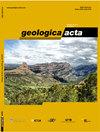埃布罗河谷地表沉积物和石膏。石膏质泥沙一词的消歧义
IF 2
4区 地球科学
Q2 GEOLOGY
引用次数: 2
摘要
自20世纪60年代以来,许多作者报道了埃布罗河谷中常见的泥沙大小的物质的存在,这些物质的表面构造和位置产生了几种解释,有时是相互矛盾的。根据文献资料,对含石膏堆积物的粉砂和细砂主要使用了三个术语(含石膏粉砂、黄土和粉状石膏)。前两个术语适用于碳酸盐含量高达40-50%,粗粉质到细砂质质地,并且位于不同位置的材料。黄土通常以厚露头出现在主风向背风的斜坡上,其土壤成因有限,由部分碳酸盐活化和石膏含量在0 - 30%之间组成。第三种(富石膏)类型具有可变的空间分布,出现在石灰石层之间,沿着脚坡,以公制地表地层或广义岩溶地下堆积的形式露头。它们的成分几乎100%是粉砂到细砂大小的透镜状石膏。虽然有些作者声称所有这些材料都是风成成因,但其中只有一部分(黄土)有明确的风成成因,而面粉状石膏则来自于现场风化的旋盖岩或钙和硫酸盐饱和地下水位的沉淀,据报道,这在许多其他干旱地区都发生过;其余(严格意义上的石膏质粉砂)主要为集体冲积型。这种区别是必要的,因为它们在与农业土地使用有关的地质技术行为和性质上有所不同,因此在这个和类似的干旱地区进行地质测绘或土壤调查时应考虑到它们。本文章由计算机程序翻译,如有差异,请以英文原文为准。
Silt-sized sediments and gypsum on surface formations in the Ebro valley. A disambiguation of the term gypsiferous silts
Since the 60’s, many authors have reported the presence of common silt-sized materials in the Ebro valley, on surface formations and positions that have given rise to several interpretations, sometimes contradictory. According to the references, three main terms are used (gypsiferous silts, loess and flour-like gypsum) applied to silts and fine sands with gypsum accumulations. The two first terms are applied to materials with carbonate contents up to 40-50%, coarse silty to fine sandy textures, and located in different positions. Loess normally appears as thick outcrops on slopes leeward from the main wind direction, with a limited pedogenesis consisting of a partial carbonate mobilisation and gypsum contents between 0 and 30%. The third (gypsum-rich) type has a variable spatial distribution, appearing between limestone layers, along footslopes, outcropping as metric surface formations, or as generalized karstified subsurface accumulations. Their composition is almost 100% silt- to fine sand size lenticular gypsum. While some authors claim for an aeolian origin to all these materials, only part of them (loess) has a clear aeolian origin, while flour-like gypsum derives from on-site weathering of gyprock or by precipitation of calcium- and sulfate saturated watertables as it is reported to occur in many other arid regions; and the rest (gypsiferous silts sensu stricto) are mainly colluvial-alluvial. This distinction is necessary since they differ in their geotechnical behaviour and properties relevant for agricultural land uses, therefore they should be taken into account when carrying out geological mappings or soil surveys in this and similar arid regions.
求助全文
通过发布文献求助,成功后即可免费获取论文全文。
去求助
来源期刊

Geologica Acta
地学-地质学
CiteScore
2.50
自引率
6.70%
发文量
13
审稿时长
>12 weeks
期刊介绍:
- Relevant conceptual developments in any area of the Earth Sciences.
- Studies presenting regional synthesis.
- Thematic issues or monographic volumes presenting the results from one or more research groups.
- Short papers reflecting interesting results or works in progress.
- Contributions and results from Research Projects, Workshops, Symposiums, Congresses and any relevant scientific activity related to Earth Sciences.
- Geologica Acta aims to stimulate rapid diffusion of results and efficient exchange of ideas between the widespread communities of Earth Science researchers (with special emphasis on Latinamerica, the Caribbean, Europe, the Mediterranean
 求助内容:
求助内容: 应助结果提醒方式:
应助结果提醒方式:


